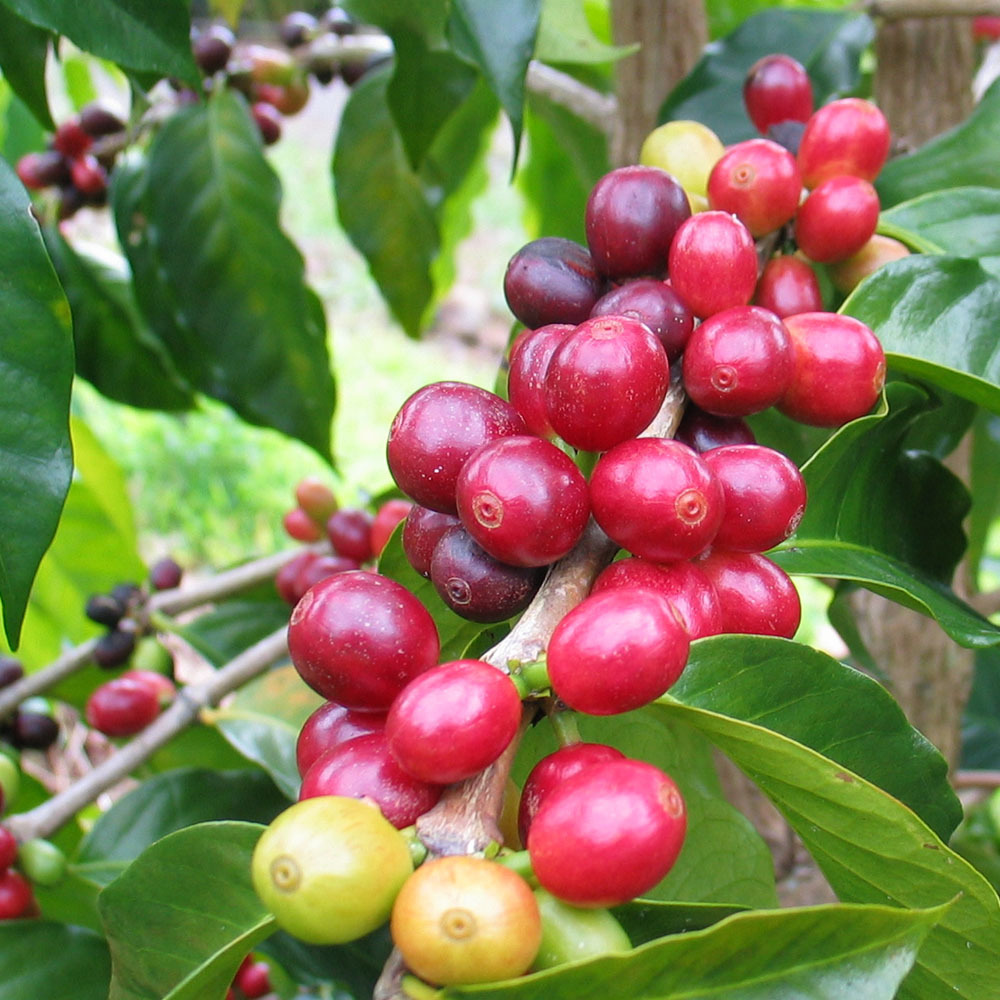Coffee beans dried, semi-dry, wet and honey-treated coffee beans fermented high-quality coffee
Boutique coffee (specialty coffee) is also called "specialty coffee" or "select coffee". It refers to coffee made from a small number of raw beans with excellent taste grown in an ideal geographical environment. Depending on the special soil and climatic conditions in which they grow, they have outstanding flavor. After strict selection and classification, this kind of coffee can be regarded as a selection of coffee beans because of its hard texture, rich taste and excellent flavor.
In recent years, with the continuous popularity of boutique coffee, new occupations: roaster and cup tester have become popular in the industry, and coffee roasting has also become the preferred way for some baristas and enthusiasts to start their own business. there are many factors that determine its taste, the variety of coffee trees, the way coffee beans are handled, the area where the tree grows, and even whether the tree has shade trees or not. Shade tree is what kind of tree and so on, there are many factors, the influence is not easy to determine. However, the author believes that each different influencing factor will have its own characteristics.
Coffee beans are treated in the following ways: sun (Natural); half-sun (Semi-Natural or Pulped-Natural); Honey processing (honey) and Washed (washing). Our most common treatment is Washed. Washing treatment means that after the coffee fruit is harvested, the immature and moldy beans are screened out by a special way, and then the peel is removed, and then soaked in a large tank for fermentation. The pectin of the fermented coffee beans falls off naturally, and then dried to remove the shell. The countries that use more water washing are mainly Central and South American countries and African countries. The characteristic of washed beans is that the taste spectrum is clean and the flavor is clear, but the sweetness is lower. Sun treatment (Natural/Dry processing), that is, the harvested coffee fruit is hand-selected, the whole fruit is exposed in a ventilated and dry sun, and then the peel, pulp and shell are removed.
The main countries that use the sun treatment are some African countries and Brazil. the sun treatment is greatly affected by the treatment environment and technological level, so the quality varies, but on the whole, the coffee beans treated by the sun have high sweetness. it has a unique fermentation flavor, but once the fermentation flavor is not played well, it will be transformed into stink, rotten milk, mildew and so on. Half-sun, can also be called half-washed, can also be called peel sun (Semi-natural/pulped-natural). That is, the peel of the coffee fruit is removed in the same way as washing, and then the coffee fruit with pectin is exposed to dry and ventilated sunlight, and then shelled. Half-sun is mainly used to treat coffee beans in Brazil, and half-sun is a unique treatment in Brazil. Half-sun-treated coffee beans do not mix with miscellaneous flavors as easily as sun-treated coffee beans, while keeping part of the taste clean and with a small amount of dried fruit-like fermented flavor.
Honey treatment (Honey processing), which is very similar to half-sun treatment, but the difference is that honey treatment retains more pulp ingredients during sun exposure. Costa Rica is the main country that uses honey treatment to treat coffee beans. due to the high level of technology required for honey treatment, honey-treated coffee beans not only have a clean taste and high sweetness, but also retain the flavor of fruit fermentation.

Important Notice :
前街咖啡 FrontStreet Coffee has moved to new addredd:
FrontStreet Coffee Address: 315,Donghua East Road,GuangZhou
Tel:020 38364473
- Prev
The three main factors affecting Coffee Coffee Teaching Coffee Teaching and Learning Coffee
1. The quality of water do you like the smell of tap water in your house? This is a very serious problem. Maybe you live in a big city where the tap water filtration system is so advanced that the quality of the water you use is even comparable to that of bottled water; maybe you live in the suburbs and the tap water filtration system is old and the tap water always has a strange smell. Unless the tap water you live in is of high quality,
- Next

The correct location of Coffee Shop sharing Campus Cafe Coffee mix beans Coffee Shop Coffee Price
Location of cafes (1): with the rapid development of Chinese university industry, campus cafes have sprung up not only around the campus, but also everywhere on the campus. In particular, the emergence of various university towns and the emergence of a large number of foreign students have made the campus coffee shop an indispensable accessory. For example, coffee chains such as Vox only Coffee have been seizing this area early.
Related
- Beginners will see the "Coffee pull flower" guide!
- What is the difference between ice blog purified milk and ordinary milk coffee?
- Why is the Philippines the largest producer of crops in Liberia?
- For coffee extraction, should the fine powder be retained?
- How does extracted espresso fill pressed powder? How much strength does it take to press the powder?
- How to make jasmine cold extract coffee? Is the jasmine + latte good?
- Will this little toy really make the coffee taste better? How does Lily Drip affect coffee extraction?
- Will the action of slapping the filter cup also affect coffee extraction?
- What's the difference between powder-to-water ratio and powder-to-liquid ratio?
- What is the Ethiopian local species? What does it have to do with Heirloom native species?

